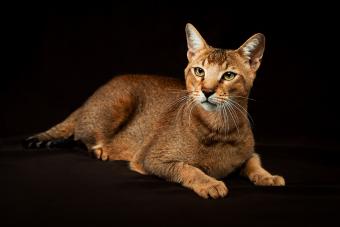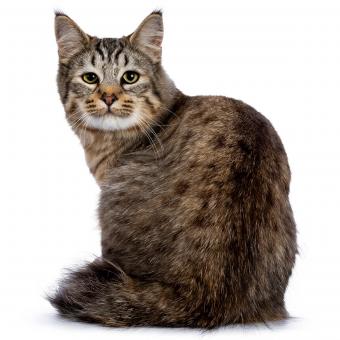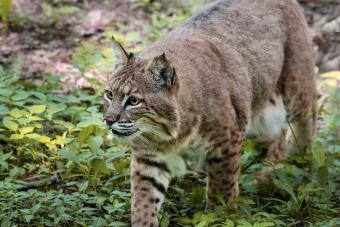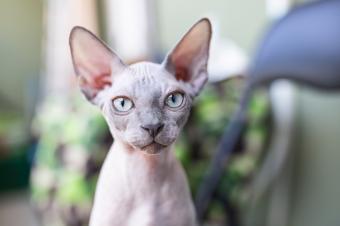
Many cats kept as pets today have wild roots, and when it comes to domesticated wild cat breeds, the roots are easy to see. If you love the wild look, consider one of these sleek beauties.
Domestic Cats With Wild Roots
There are several cats that have exotic roots. These are typically known as hybrid cats.
Savannah
The Savannah cat is a domesticated hybrid descended from the African serval. It was bred to mimic a cheetah. The Savannah is one of the tallest domesticated cats, and it reaches about 25 pounds. They have a high energy level and require lots of exercise. They are highly intelligent and have a mild temperament if they are properly socialized. They also bond well with their owners and are extremely loyal.
Bengal
The Bengal cat finds its roots in the Asian leopard cat. These sweet cats have stripe patterns that are similar to a Bengal tiger, but they are a much smaller version, only weighing at about 10 to 15 pounds. Bengal cats are social cats with high energy levels. They are also intelligent and love their owners.

Chausie
Topping out at about 25 pounds for males and 20 pounds for females, Chausie cats have a long body that is typically tabby, black, or silver tipped. This active breed descended from jungle cats. While they are accomplished jumpers and need lots of attention, these felines love their owners and family.

Pixiebob
The natural child of a short hair cat and bobcat, Pixiebob cats have pointed ears, short tails, and stripes. They are affectionate and described by some as dog-like due to their devotion to their human. This breed is also intelligent and adaptable in the family. For example, they can get along with both dogs and children.

Exotic Cats That Are Legal Pets
There are also several exotic cats that can be legal to have as pets in several states. However, remember every state does not allow ownership of exotic animals, and you might need to apply for a license.
Serval
Unlike the hybrid Pixiebob, a serval is an exotic cat that is legal in some states to keep as a pet. These golden cats with black spots and cheetah-like faces have distinctive large ears and can weigh up to 40 pounds. They are playful, high-energy cats. To keep them in your home, they will require training. However, they are difficult to train and not very friendly. They are highly intelligent and moderately affectionate with people.

Bobcat
With the right owner, this wild cat can be a perfect pet. Bobcats are medium-sized cats with a short tail, and they come in a variety of colors with spots or stripes. These cats are highly affectionate and have a strong bond with their owners. However, these are wild cats, so owners must be willing to adapt to and deal with aggression and other behaviors. These cats will also need secure outdoor accommodations.

Caracal
A type of lynx, the caracal has very distinctive, large pointed black ears with curling fur tufts. They can grow to nearly 50 pounds and need to eat meat daily. Additionally, these wild cats aren't particularly affectionate and can be destructive. Since they are wild, they can also be unpredictable and bite.

Ocelot
Another exotic cat that can be a pet is the ocelot. This medium cat with markings similar to a leopard has short, smooth fur that ranges from gray to tawny. Growing to an average of 35 pounds, these cats are nocturnal and eat mainly meat. They are intelligent cats prone to marking their territory. However, they are fairly social and will bond with humans. Since they can and do bite, it is not advised to have them around children.

Think Carefully Before Bringing Home a Wild Cat
Whether you are looking for an exotic cat or a hybrid, you can find different types of wild cats that have been domesticated or wild cats that are kept for pets. These types of pets have distinct looks and behaviors, may be aggressive and dangerous, and require specialized care. Most owners are not equipped to keep a wild cat species at home. Think carefully before adding one of these wild cats to your household, and make sure you can provide them with the correct environment, diet, and attention they need. While they might not sit on your lap and purr, they can still make unique pets.







